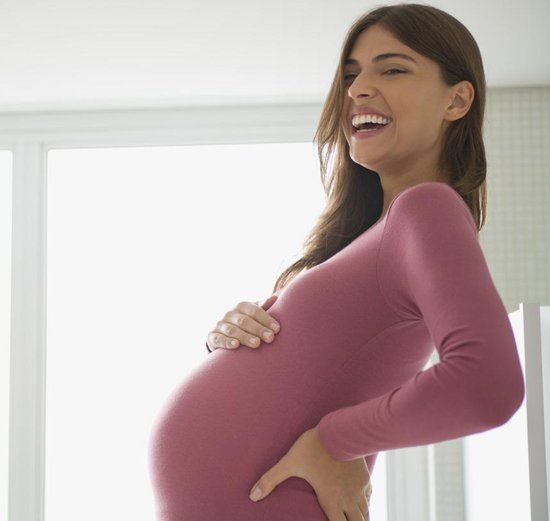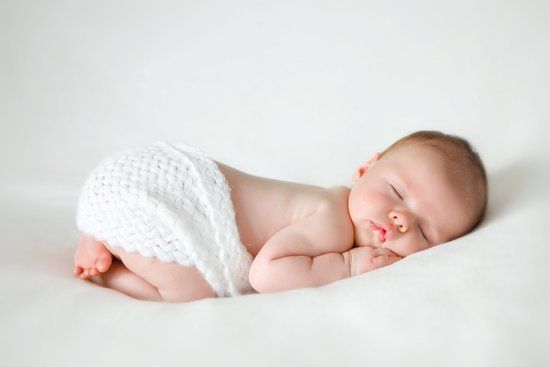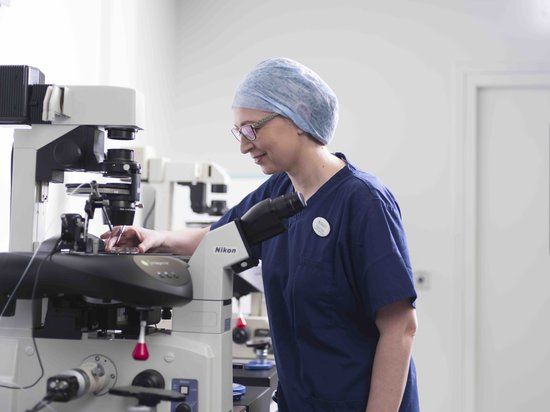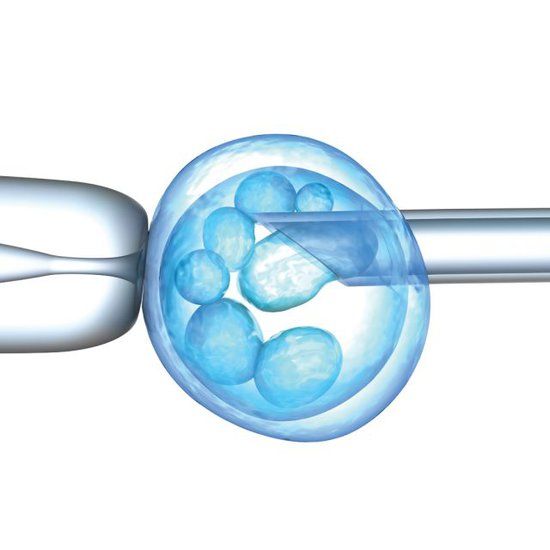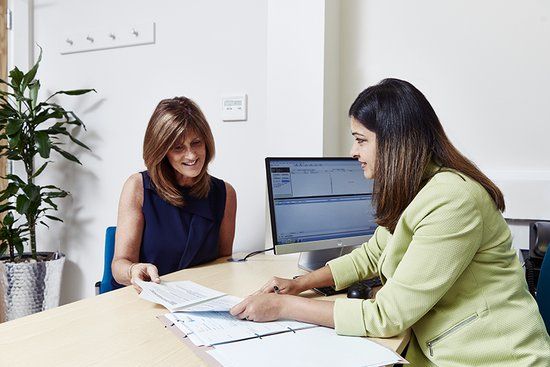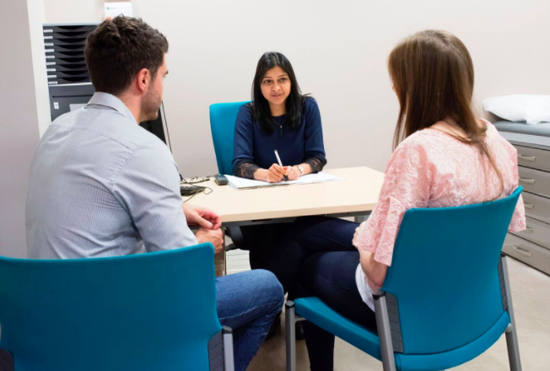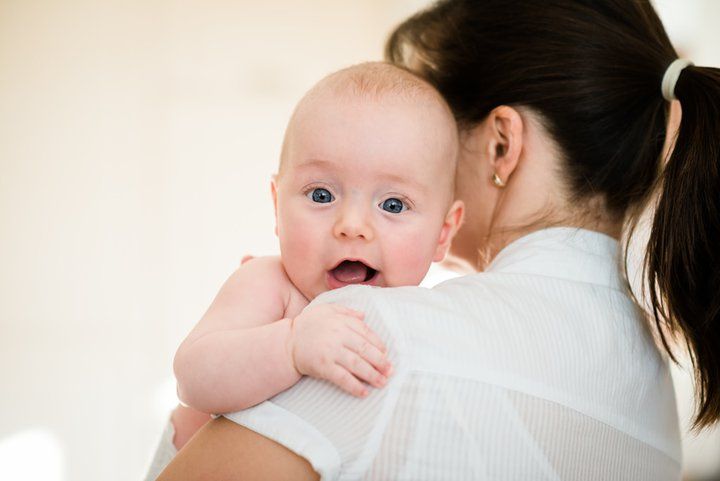
Many women start IVF expecting to use their own eggs to conceive, only to unexpectedly find further into their journey that donor eggs are in fact their best option.
So how do you end up needing to use donor eggs, if there’s no apparent reason when you’re trying to conceive, such as advanced age or a diagnosed condition such as premature menopause?
Here are the most common reasons you may be advised to try treatment with donor eggs instead of your own, and how we can help you now with no waiting list if you’ve been told you need an egg donor to conceive:
A history of failed IVF cycles
If you’ve had unsuccessful IVF cycles – and there’s no problems with your partner’s sperm including ‘hidden’ issues such as high levels of sperm DNA damage - egg quality could be the cause.
Although you may have good numbers of eggs retrieved, if these are poor quality it means poor quality embryos too, and a higher chance of IVF failure.
At Manchester Fertility we can help to identify which of your embryos have the highest potential for pregnancy during each IVF cycle through Blastocyst culture and optional time-lapse EmbryoScope development.
Blastocyst culture is where your embryos are developed for longer in our laboratory, for five days instead of three. We’ll choose only the embryos for transfer that successfully develop to this advanced stage, and at Manchester Fertility blastocyst culture is included in your cycle at no cost.
Our EmbryoScope incubators give us even more detail about embryo quality. The EmbryoScope produces highly-detailed time-lapse video footage of your embryo as it grows, stage-by-stage, so we can see exactly which embryos have developed as they should.
But you may still find that you have no embryos suitable for transfer. Egg quality is one of the most important factors influencing your chance of IVF success, and if this is the suspected reason your IVF has failed, you may be advised to use donor eggs instead.
Chromosome abnormalities
Chromosome abnormalities may mean your best chance of a baby is to use donor eggs. Chromosome abnormalities can be a hidden cause of IVF failure and miscarriage, especially amongst older women.
Even if you have an embryo that’s reached the minimum cell-stage for transfer and appears normal, it may have chromosome abnormalities that can’t be seen which may mean it won’t implant and grow successfully.
We can identify if your embryos have normal chromosome numbers through Pre-Implantation Genetic Screening (PGS).
PGS is a test that examines all 46 chromosomes in each of your embryos, without any risk to your embryos. We may advise PGS as part of your IVF cycle if you’ve had previous failed IVF cycles, recurrent miscarriage or you’re an older woman.
Your PGS results may show that none of your embryos have normal chromosome numbers, in which case donor eggs may be your best chance of a baby taking into account other factors such as your age.
Poor ovarian reserve
As part of your initial fertility investigations, we test your ovarian reserve. If your results show that your reserve is very low, you may be advised not to attempt IVF with your own eggs and to use donor eggs instead.
A very diminished ovarian reserve means that you don’t have many eggs remaining, and so will respond poorly to ovarian stimulation. Many older women have poor ovarian reserve because of the natural decline in egg numbers as they age, it’s why we advise treatment with donor eggs if you’re aged 44 and above. But younger women may have low numbers of eggs too, caused by premature ovarian failure or premature menopause.
Being advised to use donor eggs
If we do recommend treatment with donor eggs, we’ll always explain to you why it gives you the best hope of a baby compared to using your own eggs.
Our fertility specialists take into account all your unique factors when planning your treatment, including your fertility test results, age, history of IVF and likely outcome, focused always on giving you a healthy pregnancy and baby.
You can have treatment with us, including using donor eggs, right up to the age of 50.
The emotions of needing an egg donor
It’s natural to feel upset that you need donor eggs; it’s a huge decision to come to terms with for both partners. But we’re here to support you through this very special way to have your baby. You’ll be given professional counselling by our expert counsellors together with the personal support of our dedicated Donation Team.
No egg donor delays at Manchester Fertility
You may also worry that being told you need donor eggs means further delay to starting your family whilst an egg donor is found. But at Manchester Fertility we have no waiting list for UK donor eggs.
You can start your treatment with donor eggs straight away, with your choice of healthy, health-screened, fertile and identifiable UK-based egg donors from our own dedicated egg donor programme Manchester Donors. We have both frozen and fresh donor eggs ready now.
Funding treatment with donor eggs
You can choose to fund treatment with donor eggs at Manchester Fertility through traditional methods, or through a pre-paid plan that offers a money-back guarantee.
The Access Fertility IVF Refund Programme for Donor Egg Recipients is available to women aged up to 48 and includes up to three cycles of treatment at a single, fixed discounted cost. If you don’t have a baby after all included cycles are completed, you receive up to 70% of your plan fees back.
Make an appointment
If you’ve been told you need an egg donor and would like our help to have a baby, you don’t need to live in our region. We help women from all over the North including Yorkshire, Staffordshire and Lancashire, and from right across the UK, to successfully conceive using donor eggs.
Speak to our dedicated Donation Team on 0161 300 2737 to get started. Or you can self-refer here, and we’ll be in touch.
Last updated: 20th January 2020


